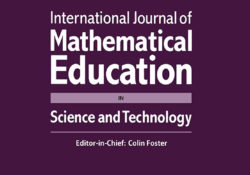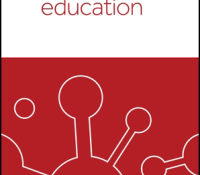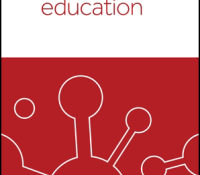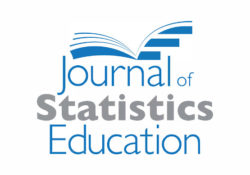tandfonline.com har udgivet en rapport under søgningen „Teacher Education Mathematics‟: Abstract Formulae display:?Mathematical formulae have been encoded as MathML and are displayed in this HTML version using MathJax in order to improve their display. Uncheck the box to turn MathJax off. This feature requires Javascript. Click on a formula to zoom. Despite shifting to emergency remote teaching, a teacher’s role and responsibility was to keep teaching their course to the same high academic standards as before COVID-19 upended our community. Meeting this challenge, without being able to use many well-established teaching practices, was also an unwanted opportunity to learn and experiment with new teaching technologies, techniques, and approaches. This note describes one such opportunity in mathematics: to design a final examination in a differential calculus course based on the connection… Continue Reading →
Like this:
Like Loading...
tandfonline.com har udgivet en rapport under søgningen „Teacher Education Mathematics‟: Abstract Abstract International student assessments are used to measure the education system quality in many countries including the United Arab Emirates (UAE). However, student performances in these exams are influenced by a complex array of factors. This study collected interview data from six central officials, three school principals and vice principals, and 12 teachers and subject coordinators in the UAE and found that language and curriculum-related issues were adversely affecting student performances in the Trends in International Mathematics and Science Study (TIMSS) and Program for International Student Assessment (PISA) exams. The student understanding of the content in the exams was connected to their language abilities, and the lack of student ability to apply mathematics and science knowledge was owing to… Continue Reading →
Like this:
Like Loading...
tandfonline.com har udgivet en rapport under søgningen „Teacher Education Mathematics‟: Abstract Abstract Academic self-efficacy is mostly construed as specific; task-specific, course-specific or domain-specific. Previous research in the Danish university context has shown that the self-efficacy subscale in the Motivated Strategies for Leaning Questionnaire is not a single scale, but consists of two separate course- and activity-specific scales; the Specific Academic Learning Self-Efficacy Scale (SAL-SE) and the Specific Academic Exam Self-efficacy scale (SAE-SE). The SAL-SE and the SAE-SE subscales have previously been found to fit the Rasch model, have excellent reliability, and initial evidence of criterion validity has been established. The aim of this study was to conduct a new validity study of the SAL-SE and SAE-SE scales in the Danish university context. Specifically, whether the original findings of fit to… Continue Reading →
Like this:
Like Loading...
tandfonline.com har udgivet en rapport under søgningen „Teacher Education Mathematics‟: Abstract Formulae display:?Mathematical formulae have been encoded as MathML and are displayed in this HTML version using MathJax in order to improve their display. Uncheck the box to turn MathJax off. This feature requires Javascript. Click on a formula to zoom. Abstract Using data on students at a Canadian business school, this article studies the effect of homework assignments and in-class quizzes on exam performance. Based on a difference-in-difference approach, assignments had a statistically discernible positive impact on exam grades for the overall sample. When broken down by gender, assignments had a positive impact on exam grades for males but no statistically discernible impact for females. Quizzes had no statistically discernible impact overall or for either gender. When broken down… Continue Reading →
Like this:
Like Loading...



